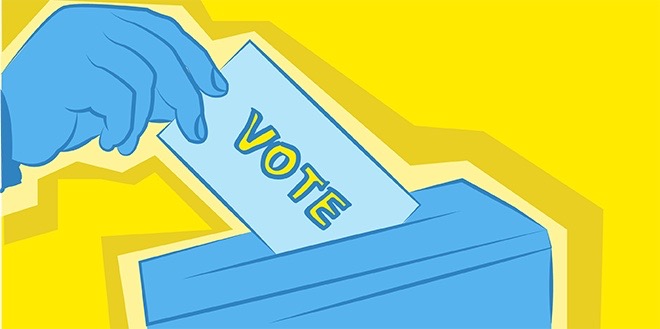USAC: A One Party System

Image by Jenny Dodge
Last week UCLA’s Undergraduate Students Association Council (USAC) elections took place on UCLA’s campus, and tensions ran high. One tension, however, was missing – the tension between Bruins United and a major opposing party.
In the past few years, Bruins United has run against Let’s Act, a student group that disbanded in 2015. Last year, Waves of Change stepped up to the plate to run against Bruins United. Of the three candidates that ran, one (Amy Shao, Cultural Affairs Commissioner) was able to secure a position. This year, however, Bruins United’s largest opposition seemed to be a slew of independent parties, with the Defend Affirmative Action Party (DAAP) sliding in with two candidates.
While many independent candidates won positions, it did feel like Bruins United had a major advantage, running as the only large, established, and majorly funded party. A single party system is not a democracy. Registering a USAC slate, the campus version of a political party, involves quite a bit of paperwork, but at the bare minimum requires two slate members.
It’s easy to understand why so many candidates chose to register as independent. Paperwork is just one thing, but forming another large, majorly funded, established party isn’t easy work. It’s emotionally exhausting to constantly butt heads with people who may have been going at this for longer than you have, and getting funding from large donors as one person is much more difficult than as a large group. In addition, larger and established groups already have an established donor pool. They have the financial and emotional support of their slate. While for many students, USAC elections are only one event out of the year, candidates spend months planning their run for office. It’s difficult to find and form a team of like-minded students months in advance when you’re starting from scratch.
Another factor to consider is student engagement. This year’s USAC elections had the lowest voter turnout in 10 years. In comparison, last year’s election had one of the highest voter turnouts in recent history. We need to find the reason why. Are people exhausted with campus politics? Is USAC no longer relevant? Perhaps USAC doesn’t make itself relevant enough to the student body as whole. Maybe it was the number of uncontested positions. There must be some reason this year’s election had such a low turnout.
The most striking possibility is that USAC simply isn’t relevant as far as students can tell. If students felt like their votes mattered or were more aware of what USAC does, voter turnout might increase. While it’s instinctive to assume USAC does plenty of hard work for the student body, any random student walking down Bruinwalk would be hard-pressed to think of something USAC does. We vote for them. Meaningless sanctions occur during election week. They get elected. If students felt like USAC actually engaged with all parts of the student body, they would be more incentivized to vote.
It’s time for a new major party to emerge at UCLA. While independent candidates may be qualified and organized as individuals, there is strength and support to be found in a commonly grounded slate. It’s incredibly difficult to run independently, and a lot of the independent candidates this year seemed to share values such as creating a safe environment for the diverse range of UCLA students, reaching out to more student-run clubs, and increasing civic engagement on campus. Instead of running against each other, candidates who share values can work together to run for separate office. This would have the benefit of spreading shared ideals across the USAC offices, rather than having people with the same vision fighting for the same spot.
It’s difficult to fight a major force alone, but together, Bruins can create a more balanced political climate on campus. The time to start is now.




